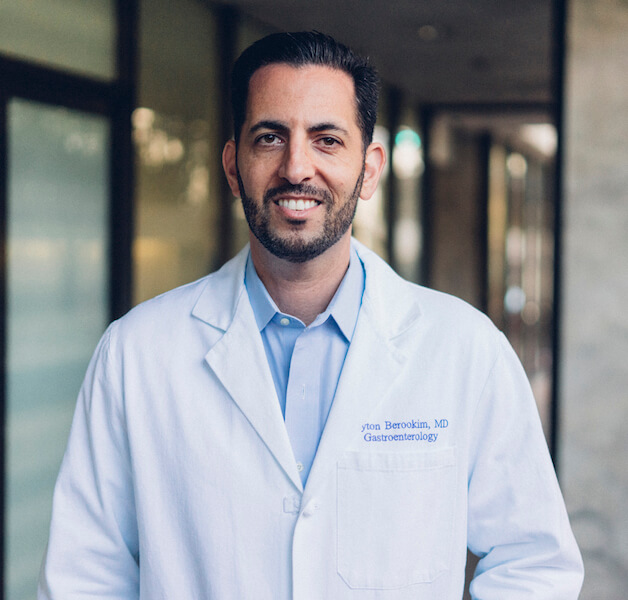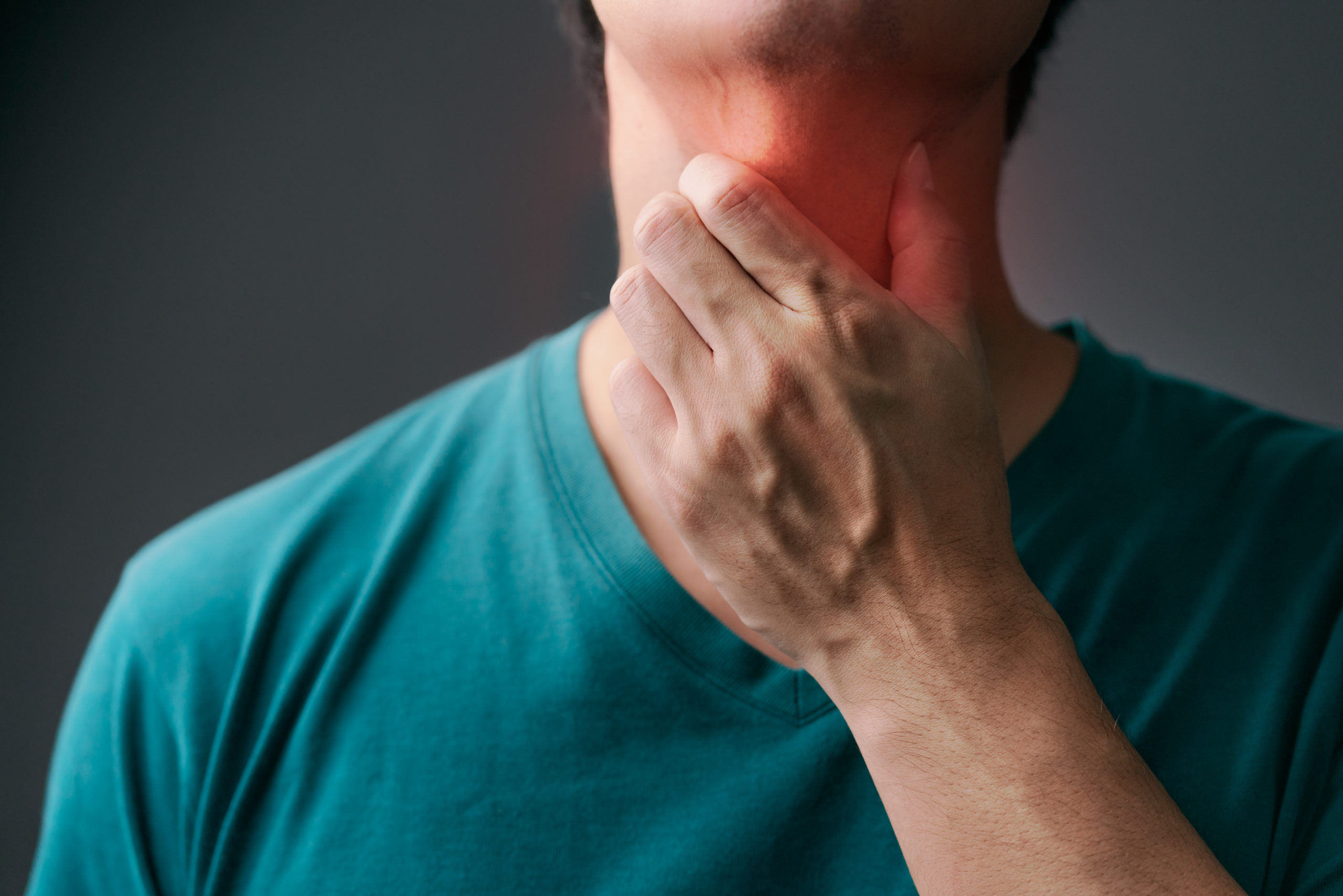Certain symptoms, such as a sore throat or a little hoarseness may be signs of an incoming cold or flu. But if you have experienced these symptoms for a prolonged period of time, then it may be a sign of an issue with your lower esophageal sphincter, rather than a virus. The lower esophageal sphincter is the muscle that controls the passage between the esophagus and the stomach. When this muscle doesn’t close properly, it causes stomach acid to flow back into the esophagus, resulting in acid reflux, otherwise known as gastroesophageal reflux.
Acid reflux can result in a wide range of symptoms, including but not limited to a sore throat, hoarseness, trouble swallowing, a bad taste in your mouth, and more. When the symptoms of acid reflux become chronic, then it is referred to gastroesophageal reflux disorder, also known as GERD. One of the most common symptoms of GERD includes heartburn, which is characterized by an uncomfortable pain in the upper chest and abdomen.
If you believe you are experiencing acid reflux or GERD, then it is best to consult with a gastroenterologist Los Angeles. Our team at GI Doctor is here to help every step of the way.
There are a wide range of conditions that can result from acid reflux, which include inadequate clearance of food or liquid from the esophagus, too much acid in the stomach, or a delay in stomach emptying. These three factors can result in acid reflux, which can be extremely uncomfortable.
How Can I Relieve Acid Reflux?
If you have experienced repeated symptoms of acid reflux, then it may be time to consider trying the following to potentially alleviate these symptoms:
1.Eat smaller meals and do so slowly
When you eat too quickly or too much at once, this can result in more reflux into the esophagus. If your schedule permits, you might want to try eating smaller meals more often rather than three bigger meals a day.
2. Avoid certain foods and drinks
There are a wide range of foods and drinks that can trigger acid reflux, including fatty foods, spicy foods, onions, garlic, tomatoes, mint, coffee, tea, chocolate, and alcohol. If you experience acid reflux often, then it is best to omit these foods from your diet to determine if doing so controls your acid reflux. Once you have determined the contributing factor, you can try adding back these foods slowly one by one.
3. Avoid carbonated beverages
Another common culprit of acid reflux are carbonated beverages. It is best to avoid carbonated drinks. If you drink sparkling water, it is best to go for flat water instead to alleviate acid reflux.
4. Stay up for a few hours after eating
It is best to finish eating at least three hours before bed. This is because gravity helps keep stomach acid in the stomach, instead of traveling into the esophagus, which can be caused from laying down too soon after eating. To keep this issue at bay, you should not nap after lunch, late dinners or late night snacks.
5. Control your weight, if advised
If you are overweight, it is best to control your weight as much as possible with exercise and healthy eating. When excess weight is spread along the muscular structure that supports the lower esophageal sphincter, it decreases the pressure that the sphincter holds. This can result in acid reflux and heartburn.
6. Quit smoking
If you are a smoker, then this can be another contributing factor of acid reflux. It is best to quit smoking, as nicotine can result in causing issues to the lower esophageal sphincter.
7. Talk about your medications with your doctor
Another contributing factor of acid reflux may be your medications. Speak with your doctor to determine if the medications (if any) that you are taking are the cause of your acid reflux. There are many medications that can relax the sphincter or irritate the esophagus, resulting in acid reflux.
Contact a Gastroenterologist Los Angeles

If you are experiencing acid reflux or GERD, then it is in your best interest to consult with a gastroenterologist Los Angeles residents can trust. At GI Doctor, our team is dedicated to providing our patients with the best diagnosis, treatment, and prevention methods to ensure they are in good health.
Our gastroenterologist Los Angeles understands the burdens that come with having to deal with this condition and we are here to help every step of the way. Feel free to contact our team so we can learn more about your symptoms and help you get back to where you need to be.
When it comes to gastrointestinal health, get the leading-edge know-how and heartfelt care you and your referring doctor can depend on. Visit Peyton P. Berookim, MD, at Gastroenterology Institute of Southern California. Call 310.271.1122 for help with your digestive problem. For your convenience, you can fill out our online Request an Appointment form to schedule your consultation with Dr. Berookim.


